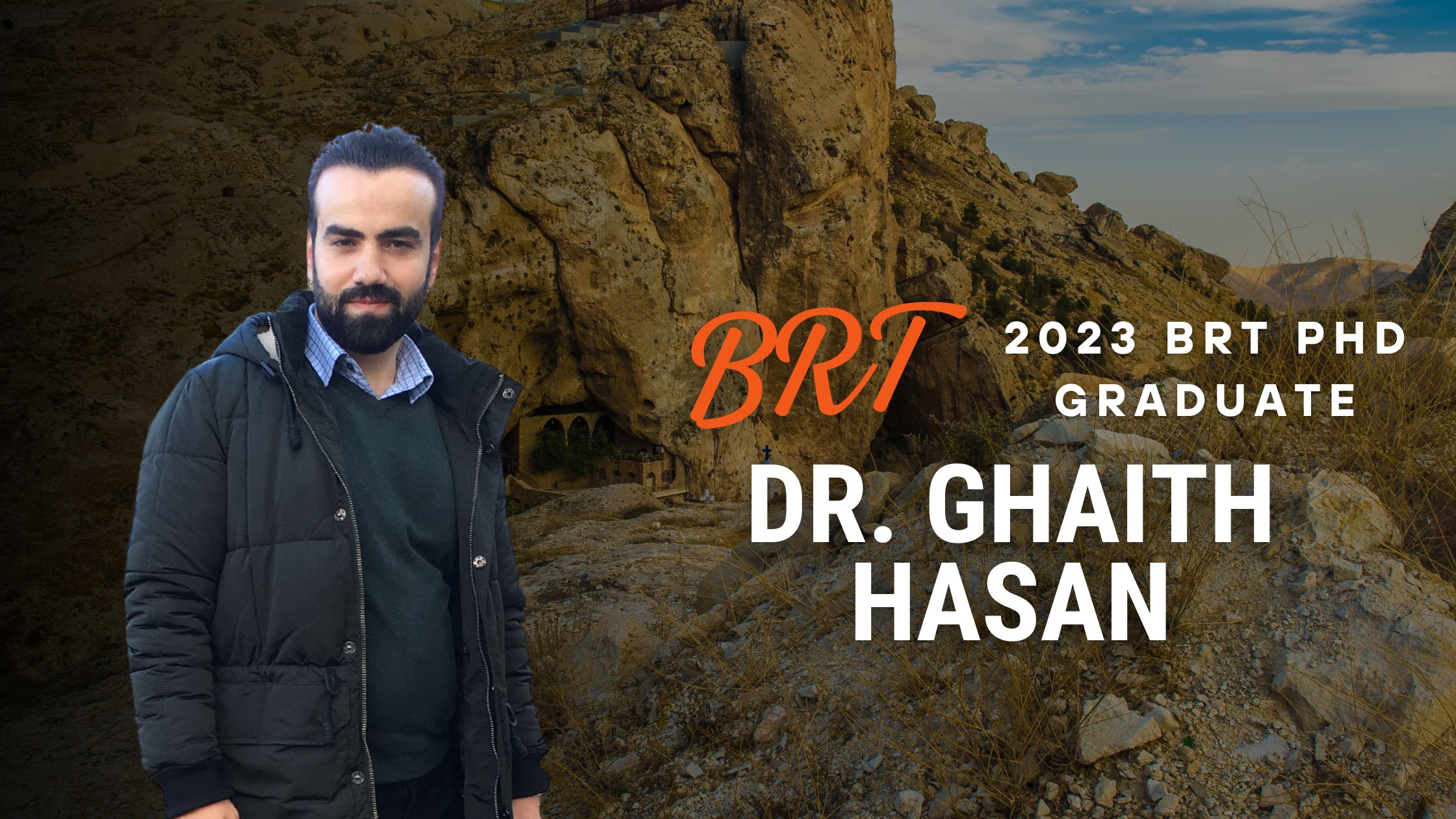Introducing our 2023 PhD graduate, Dr. Ghaith Hasan
Dr. Ghaith Hasan earned his Ph.D. in Sustainable Rural Development at the Czech University of Life Sciences Prague, under the BioResources & Technology Division (BRT). His research aimed to provide a comprehensive assessment of the prospects and challenges of biogas technology in Syria. His research topic was ‘Social and economic assessment of small-scale biogas plants in the developing world: A case of Syria’. He has co-authored/published 2 scientific publications and participated actively at international conferences and in 2 internships during his doctoral studies.
To get more insights into Dr. Hasan's academic journey, our BRT Communications team conducted an interview to capture his thoughts and share his story.
ENJOY THE INTERVIEW!
Question 1: How does it feel to have successfully defended your doctoral dissertation?
Dr. Hasan: Successfully defending a doctoral dissertation is a significant academic milestone. After a long, intense period of work and study, I feel proud as I have contributed to meaningful research in my field. Generally, finishing a Ph.D. degree is an achievement that opens new opportunities in academia or industry. It's also a time for reflection on personal and professional growth, coupled with gratitude for the support of my supervisor, BRT director Hynek Roubik, and loved ones.
Question 2: Can you share pivotal moments from your academic journey that you believe were crucial in successfully defending your doctoral dissertation?
Dr. Hasan: A pivotal moment of my academic journey was going to Syria several times to conduct research. It was not easy to go to remote areas and collect data under complex circumstances. While this was the cornerstone of my research, and led to some difficulties, Assoc. Prof. Dr. Roubik and Dr. Mazancova were my essential supporters leading to my final defence being a beautiful memory that I will carry with me throughout my life.
Question 3: How has this achievement influenced your overall experience and professional growth?
Dr. Hasan: In general, earning a Ph.D. fosters expertise, research and analytical skills, and networking opportunities. The degree cultivates independence, problem-solving, and adaptability, overall enhancing one's professional credibility. With teaching experience, a strong publication record, and diverse career options, a Ph.D. journey also fuels personal growth, resulting in a resilient and confident individual.
Question 4: Reflecting on the process, what were the significant challenges you encountered during your dissertation's writing and defence phases, and how did you navigate through them?
Dr. Hasan: The main challenges I faced came from conducting research in a country subject to civil war. Due to an unsteady security situation, it was not easy to obtain security approvals to conduct the research. This was difficult as the road to the villages and towns for data collection were not the safest. In addition, there were power outages for twenty hours of the day and it was tough to charge electronics and analyze data Lastly, the financial cost was large due to multiple trips to conduct research.
Question 5: Balancing academic commitments, personal life, and other responsibilities can be demanding. How have you managed to strike that balance while working on your dissertation?
Dr. Hasan: Obtaining a doctorate degree was my ultimate goal, something I dreamed of throughout my life. I thank God for blessing me with an understanding and supportive wife and my family for their trust and support along the way. It was not easy considering the obligations, but nothing comes without sacrifice and a price.
Question 6: What valuable advice would you offer for fellow doctoral candidates preparing for their dissertation defence?
Dr. Hasan: For my dear colleagues at the BioResources & Technology Division, we are very fortunate to have an experienced team leader who charts the way for a successful final defense for us. Follow your supervisors' advice and address the committee's comments in detail. Focusing on the presentation is essential, so practice in front of your friends and colleagues before going into the final round.
Question 7: Do you have any recommendations for current and future BRT students?
Dr. Hasan: Choose a subject for your thesis that aligns with your interests after discussing deeply with your supervisor and considering research opportunities and resources. Establish strong relationships with senior BRT colleagues and other FTZ advisors for crucial guidance. Define a clear research focus early on for effective time management and meaningful contributions. Actively engage in networks, prioritize self-care, and plan for the future by aligning internships with career goals.
Question 8: Now that you have reached this momentous achievement - What are your plans for the future?
Dr. Hasan: I aspire to work in university teaching. Perhaps now I am far from that for several reasons, but academic work has always been something I enjoyed. I have many future plans to apply the results of my research in my country, but the circumstances and time are not appropriate for that now. I would also like to spread awareness about adopting biogas in rural communities in the Middle East.
We thank Dr. Hasan for sharing insights into his academic journey and wish him success, new discoveries, and a continued sense of fulfilment in his future endeavours!
For more details on BRT activities, subscribe to our newsletter or follow us on social media for regular updates and highlights.


